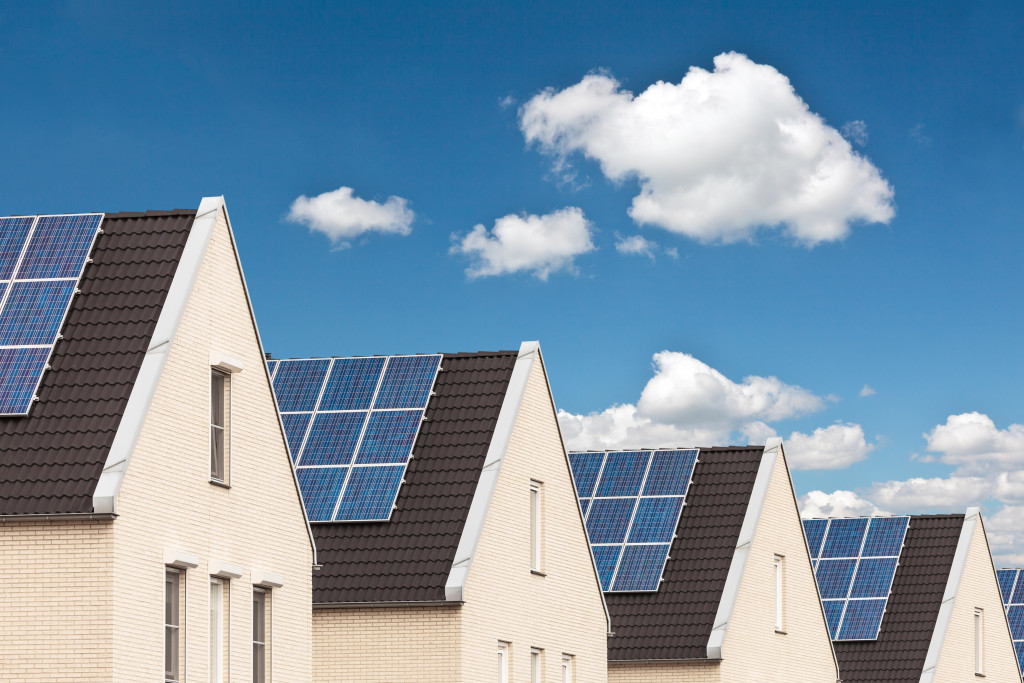Sales of single-family homes reached 685,000 units in August 2022. While the figure is slightly lower than the 686,000 units in August 2021, it’s higher than the 532,000 in July 2022. The average monthly price was $521,800, lower than the $556,700 in July.
If you’re in the market for a new home, you might be wondering how you can find an energy-efficient property. After all, an energy-efficient home costs less to operate and is better for the environment. Here are a few tips to help you find an energy-efficient house.
Look for the ENERGY STAR label.
An ENERGY STAR label is crucial because it signifies the house’s energy-efficiently designed. This means that you will save money on your energy bills and do your part in helping the environment.
You can look for several things when searching for an energy-efficient house. One of the most important factors is the ENERGY STAR label, which indicates that the house has been designed with energy efficiency. Other key features include:
- Proper insulation.
- High-quality windows and doors.
- Smart appliances and fixtures.
- A heating and cooling system to minimize energy use.
Overall, looking for the ENERGY STAR label is essential if you want to find a house that is both comfortable and energy-efficient. This will help you save money, reduce your environmental impact, and enjoy all of the benefits of a high-quality home.
Keep an eye out for green features.
When looking for a new home, it’s essential to keep an eye out for green features that can save you money on your energy bills. Aside from Energy Star appliances, it would help if you also looked for high-efficiency HVAC systems and proper insulation. Choosing a home with green features can save a lot of money in the long run on your energy bills.
Additionally, you can feel good about making more sustainable choices and doing your part to help protect the environment. So if you’re in the market for a new home, look for energy-efficient features that can help you save money and live a greener lifestyle.
A reputable real estate agent can tell you if the house you’re eyeing has these features. So, you should work with an experienced and knowledgeable professional. In the end, by choosing a green home, you can save money and help protect the planet for future generations.

Ask about the home’s HERS score.
When looking for a new home, knowing the HERS score is essential. The Home Energy Rating System (HERS) is a scoring system used to measure a home’s energy efficiency. The score is based on the home’s construction, insulation, windows, heating and cooling systems, and other factors. A higher HERS score means a more energy-efficient home.
Knowing the HERS score of a house can help you save money on your energy bills. A high HERS score means the home has been built to be more energy efficient, which means you’ll use less energy to heat and cool it. This can save you money on your monthly utility bills.
If you’re looking for a new home, ask about the home’s HERS score. This will give you a good idea of how energy-efficient the home is and how much money you can expect to save on your energy bills.
See if there are any tax incentives available.
Tax incentives are essential when looking for an energy-efficient house because they can help offset some of the costs of making your home more environmentally friendly. Some tax incentives may be available at the federal, state, or local level, so it’s important to research and see what’s available in your area.
There are many benefits to taking advantage of tax incentives when searching for an energy-efficient house. First and foremost, you’ll save money on your taxes. Additionally, you may be eligible for other incentives, such as rebates from your utility company or state or local government. By taking advantage of tax incentives, you can make the switch to an energy-efficient home more affordable and easier than ever.
Check if the home is optimized for energy efficiency.
You can do a few things to ensure that your home is as energy-efficient as possible. One of the most important things is to check if the home has been optimized for energy efficiency. You can look for features such as Energy Star appliances, high-efficiency insulation, and energy-efficient windows and doors. If the home doesn’t have these features, you can upgrade them yourself to help reduce your energy consumption and save on your energy bills.
Overall, investing in an energy-optimized home is a great way to help reduce your impact on the environment and lower your energy costs. Making your home more energy-efficient can help decrease your carbon footprint and save money over time. So if you’re looking for a new house, consider these tips when searching for an energy-efficient home.
These are just a few tips to help you find an energy-efficient house. By keeping these things in mind during your search, you can save money on utility bills and do your part to help the environment.
